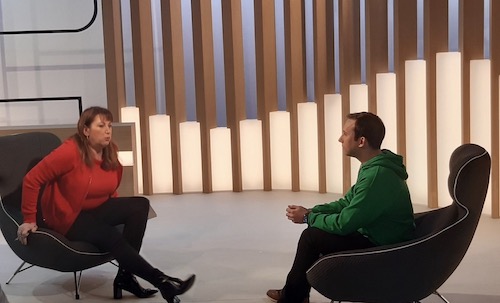We vulgarize videogames!
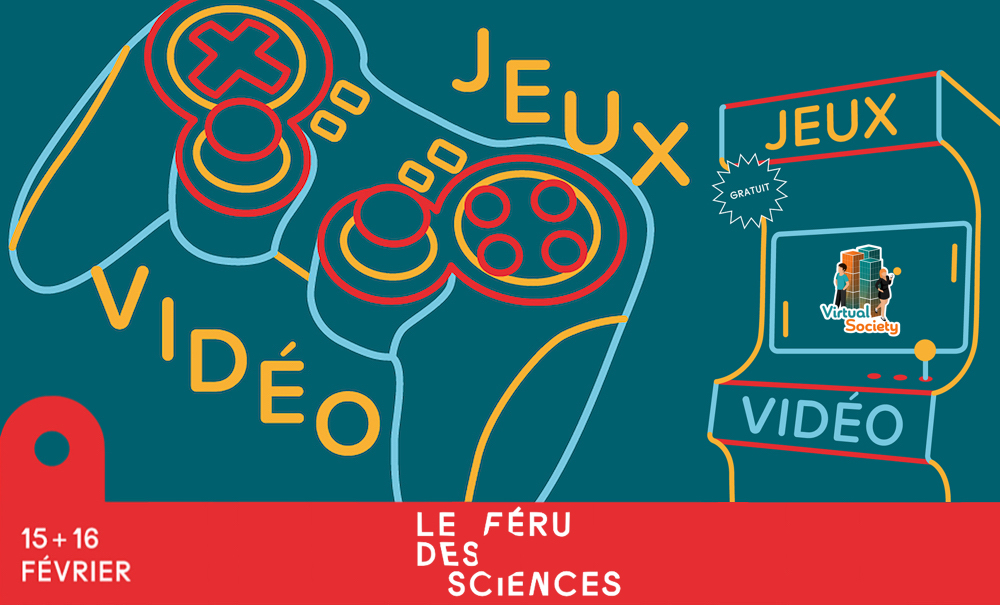
Hi folks! As we previously announced, this week we were at the Féru des sciences for a two days event about video games. The Féru des sciences, former museum of iron history, is now a scientific and cultural space that offers to discover different scientific themes in family.
A few months ago, the communication team of Inria, who works in the offices right next to us, and with whom we interact a lot, put us in touch with the team of the Féru so that we could participate in this event by animating a stand. Obviously, this is the kind of event that we would have loved as children, and it is with great pleasure that we participated. We spent part of the week preparing our booth, and Wednesday and Thursday hosting our booth at the show.
Our workshops
We prepared several activities to try to show different aspects of game creation, and to show what we are working on.
- We prepared a workshop on materials in video games, to explain how the use of different textures can define how a material reacts to light, with normalMaps, roughnessMap, metalnessMap, etc. We of course adapted the explanations according to the age of the participants, and this stand sometimes allowed to interest parents a little more while their children were participating in the other stands.
- Clélie animated a workshop on gamedesign, by proposing to the children to build levels of video games from different subjects proposed (for example: the player can fly, the player is not allowed to touch the ground, etc.), and asked them different questions to bring them to explain their choices of gamedesign, and the different problems of the level design
- We proposed the game "Running Guys" developed by Jimmy and Maxime Gourgoulhon about ten years ago on Blender Game Engine. It's a game played by two people, where a policeman has to catch a robber who tries to outrun the policeman.
- Finally, the "Feru des sciences" team provided us with a video projector, on which we proposed our current version of VirtualSociety. Not all actions in the game are yet achievable with a controller (we mainly use keyboard/mouse to develop the game), but players could still try out a part of the current game.
At the beginning of the show, we weren't sure if our booth would attract much traffic; we were right next to a "video game museum" booth that offered games on different consoles, from the oldest to the newest, and their PlayStation 5 was right next to our tables. We quickly realized that kids were coming anyway, many of them passed by Clélie's gamedesign booth, and several kids played VirtualSociety and Running Guys for a long time!
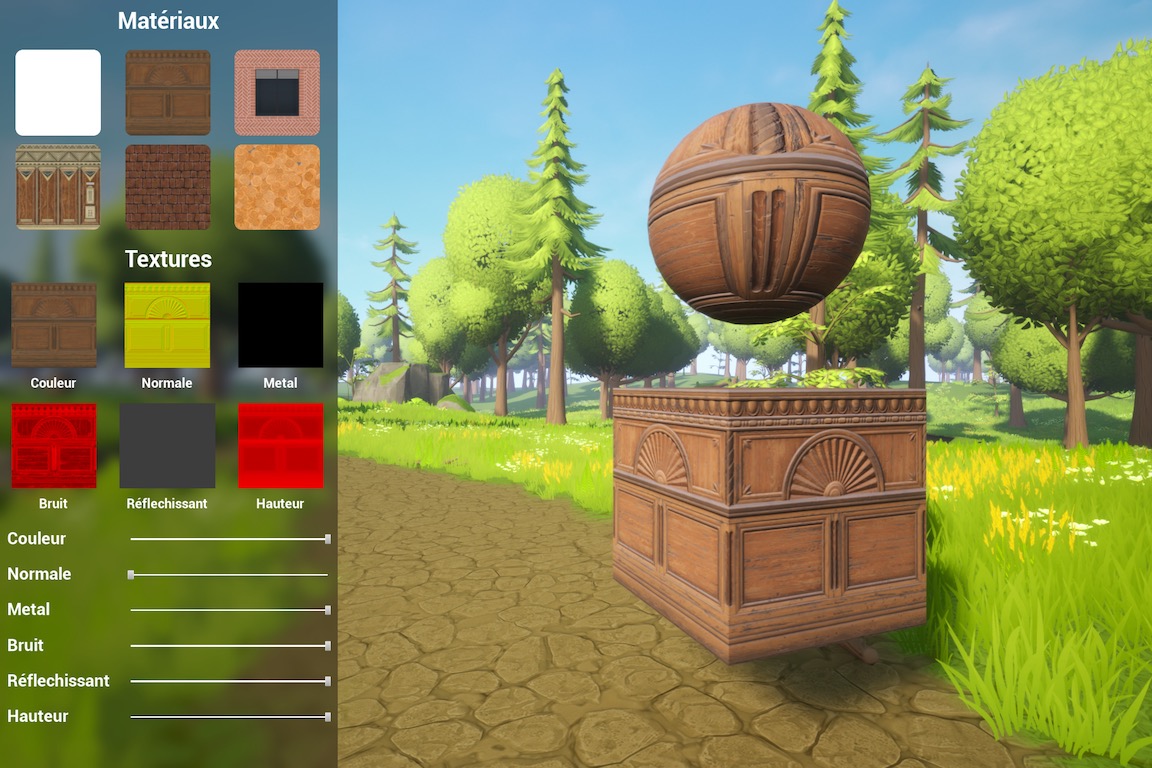
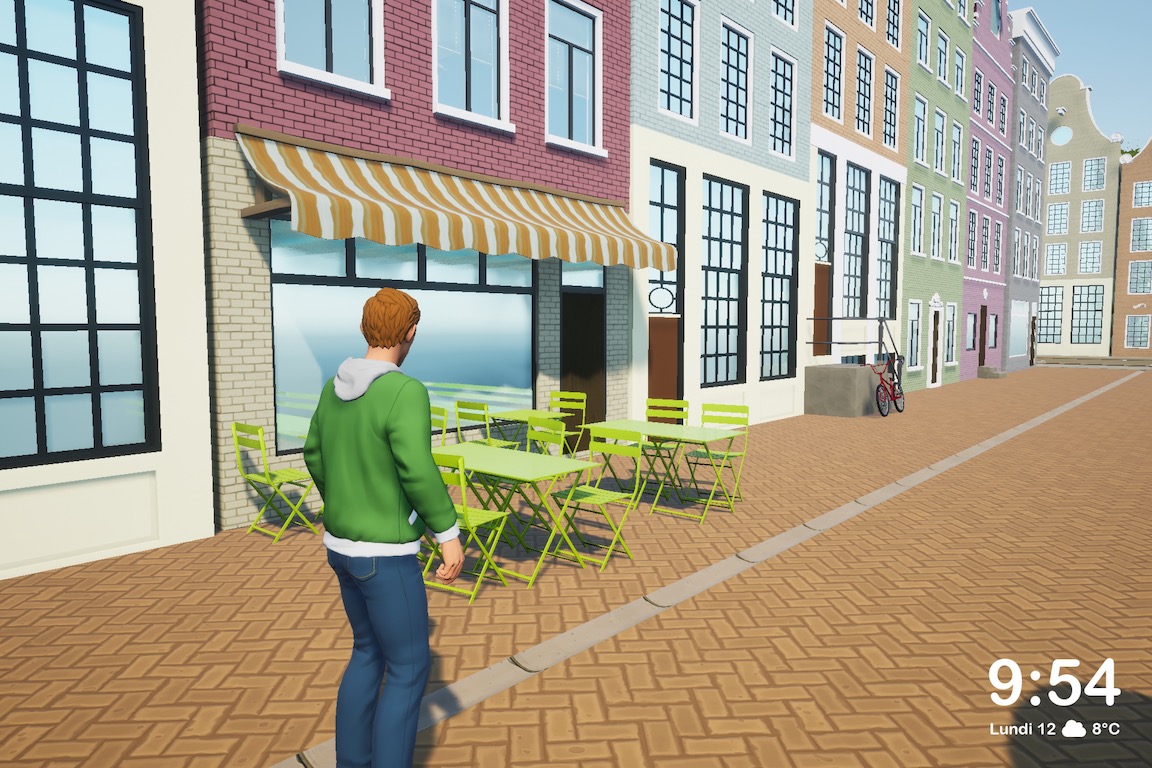
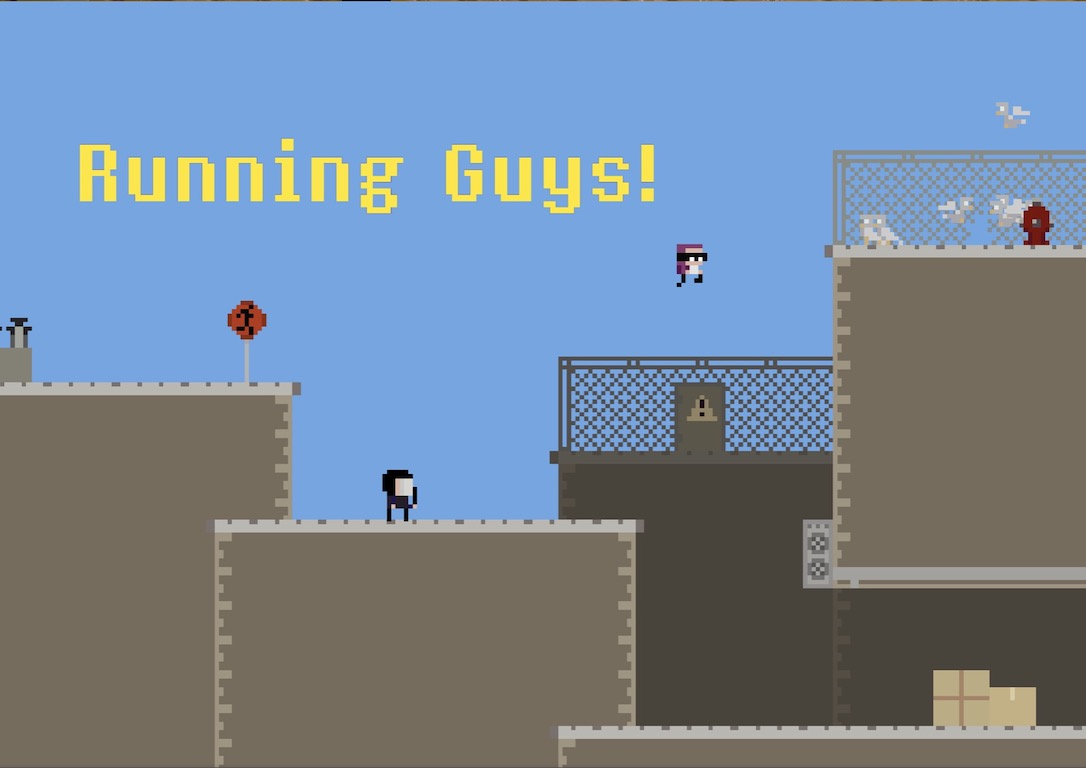
The audience of the show was very interested and friendly, and we had many interesting exchanges with the participants. On VirtualSociety, we had left a controller control to switch to ragdoll mode (ragdoll, which makes the character collapse). This control is obviously not meant to stay in the game, the ragdoll mode is simply triggered when the player takes a big fall (falling from a height, or falling while skateboarding for example), but for this show we thought it would be funny to leave a control to trigger it manually. Many children played with it a lot. One of them, after about 30 minutes of running, jumping and falling in the game, came to ask us about the game concept. After explaining it to him, he told us that he had a completely different idea, and that for him, at night, there should be zombies, and that he should hide and fall down to pretend to be dead and escape them.
We also met several kids who want to create their own video games. So we gave them different tips and a few hints so that they can progress on their own.
On the second day, several children from the first day insisted with their parents/grandparents to come back on the second day and came back to our booth. The average audience was a bit older, and Science Fester apparently broke its record for an event, with nearly twice as many people.
We talked a lot with parents or grandparents while the kids were having fun. Some were worried about the future of video games, but there is no doubt that the entertainment and emotions of video games have a long way to go. Others were more there to encourage the children, more or less shy, to interact with us. And sometimes, after a few exchanges, the tongues were loosened and we learned that they already knew which schools they wanted to go to, even though they were only 10 or 12 years old (it was so cute ^^).
The event
The event proposed many very different exhibits, including Captain Lee who proposes to draw the sets, characters, objects and map of a game on a sheet of paper before digitizing it to make a video game level, the regional conservatory of Greater Nancy came to interpret game music, a virtual reality space proposed by Inria, a museum of video game consoles, etc.
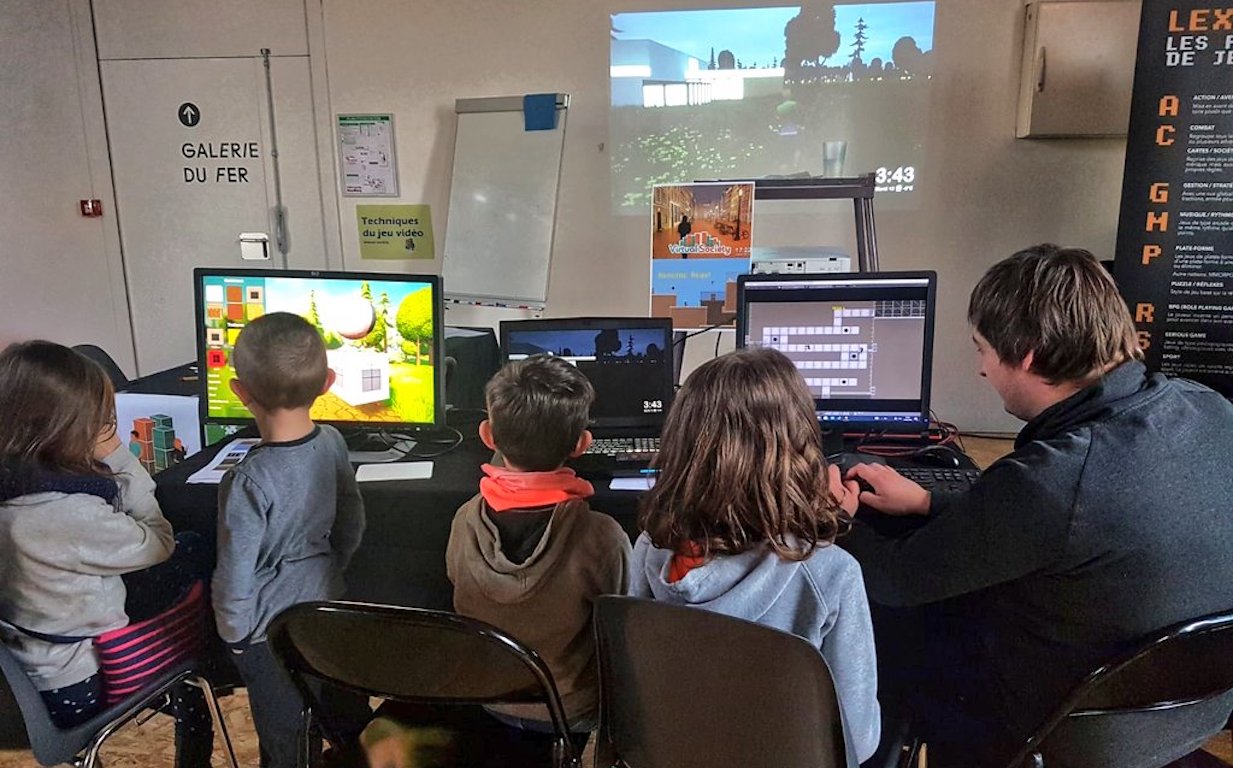
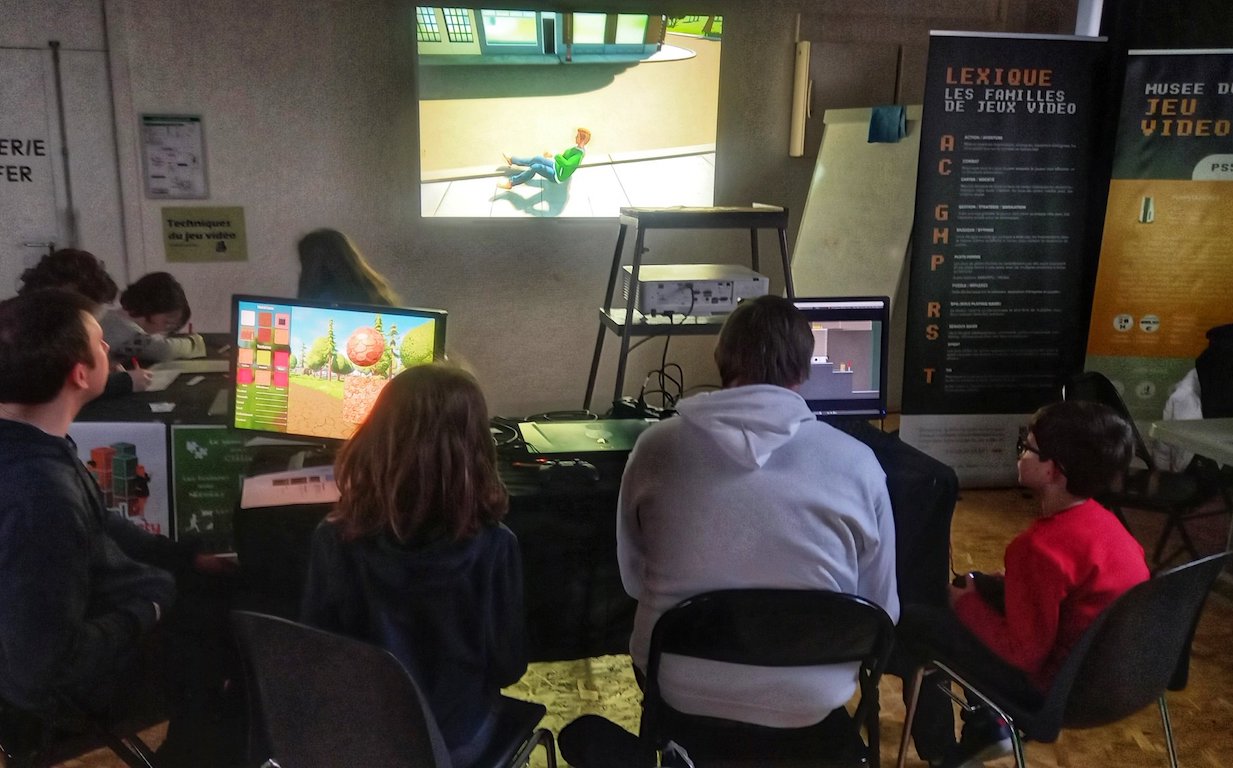
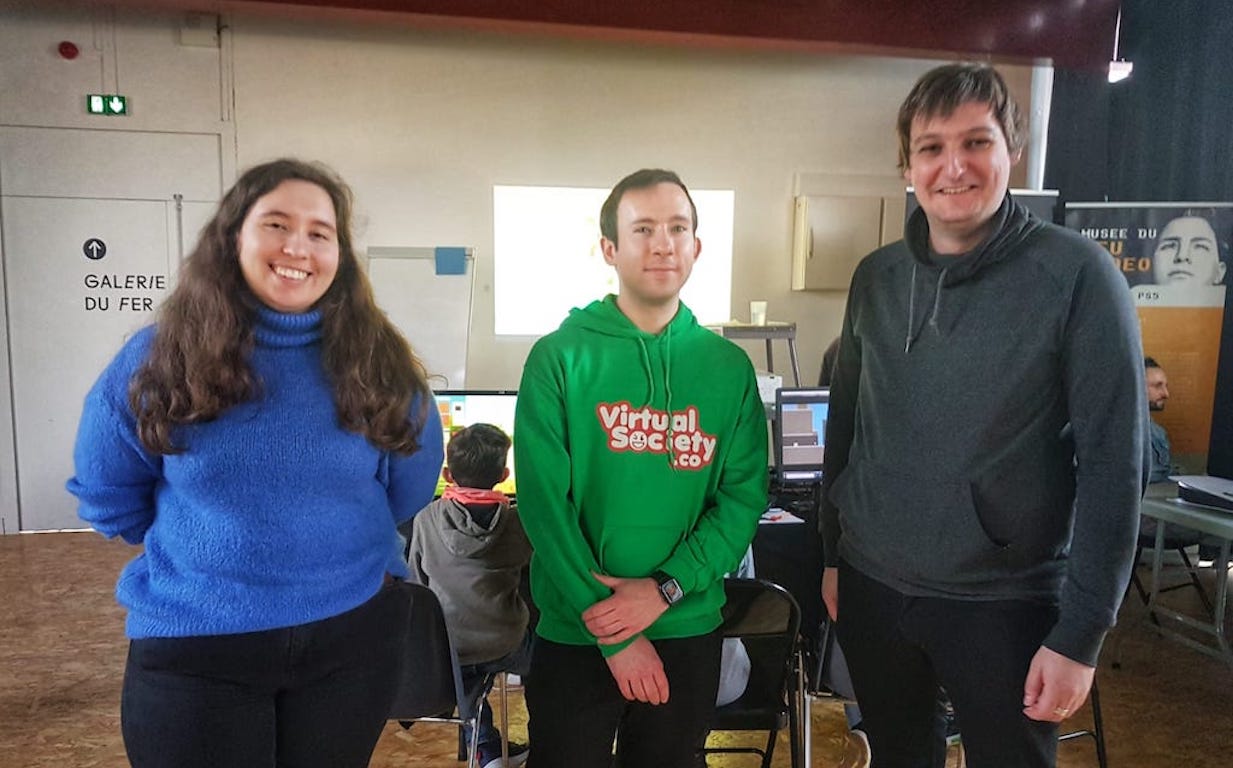
This event was also the opportunity to meet other local actors in the field of games, with for example Olivier Ageron who teaches at the Ecole des Mines and the Ecole d'Art de Nancy to push his students to think and design games within the Artem Game Lab. We also met several musicians who are very interested in small independent studios like us, and we will be able to contact them again very soon.
A big thank you to the communication teams of Inria and Le Féru, the good atmosphere and the smiles are already quite important, but their motivation to make science and games known and discovered in a playful and accessible way made us spend excellent moments!
See you next week!
 Français
Français
 English
English

